July 08, 2024 | Holly Moody-Porter
 The University of Maryland School of Medicine (UMSOM) announced today that Jeff Hasday, MD, Dr. Herbert Berger Professor of Medicine, has stepped down from his role as Chief of the Division of Pulmonary, Critical Care, and Sleep Medicine after more than 23 years of leadership and academic achievement.
The University of Maryland School of Medicine (UMSOM) announced today that Jeff Hasday, MD, Dr. Herbert Berger Professor of Medicine, has stepped down from his role as Chief of the Division of Pulmonary, Critical Care, and Sleep Medicine after more than 23 years of leadership and academic achievement.
At the same time, the School announced that a new Division Chief and a new Clinical Chief have been named for the Division. Jason J. Rose, MD, MBA, Associate Professor and Associate Dean for Innovation & Physical Science Development and Director of Faculty Entrepreneurship has been named new Division Chief.
Nirav G. Shah, MD, Professor of Medicine and Assistant Dean for Medical Education, has been named Clinical Chief of the Division. Both started in their new roles on July 1, 2024.
Dr. Rose joined the University of Maryland School of Medicine faculty in 2022 from the University of Pittsburgh School of Medicine where he served as the Associate Vice Chair of the Department of Medicine for Innovation and Commercialization.
An accomplished physician-scientist, Dr. Rose focuses his work on understanding and improving the therapy for inhalational toxins and lung injury, acute respiratory failure, hemorrhagic shock, and anemia.
He helped to discover and develop a novel class of point-of-care antidotal therapies for carbon monoxide poisoning utilizing a heme-containing proteins as molecular scavenging agents. Dr. Rose also is one of the top experts on E-cigarette or Vaping Use-Associated Lung Injury (EVALI), where he led one of the first clinical studies to report the long-term impact of the disease.
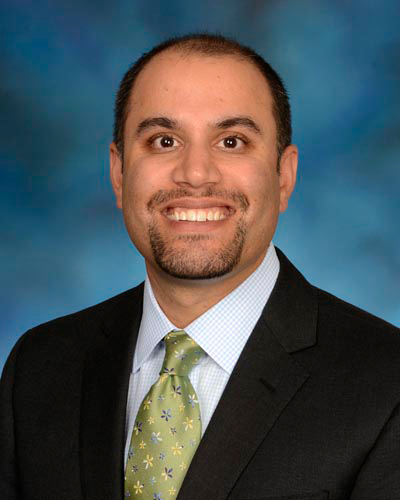 Dr. Shah completed his Critical Care Medicine fellowship at the National Institutes of Health and his Pulmonary Medicine fellowship at the University of Maryland before joining the faculty in 2009. He is widely recognized as an outstanding critical care practitioner and educator who has received multiple teaching awards.
Dr. Shah completed his Critical Care Medicine fellowship at the National Institutes of Health and his Pulmonary Medicine fellowship at the University of Maryland before joining the faculty in 2009. He is widely recognized as an outstanding critical care practitioner and educator who has received multiple teaching awards.
He currently serves as Co-Director of the DC-Baltimore Critical Care Educational Consortium, Associate Chief for Education & Faculty Development, and Assistant Dean for Medical Education.
When Dr. Hasday was appointed Division Chief in 2001, the program had just eight full-time faculty members and six clinical fellows. Today, it has grown to include 40 faculty and 34 fellows across multiple clinical sites in Maryland.
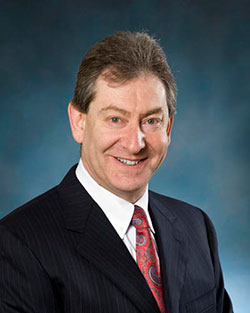 The Division's educational programs have expanded from a single fellowship program in Pulmonary & Critical Care Medicine to now include additional fellowship programs in Critical Care Medicine, Interventional Pulmonology, and Sleep Medicine. Its research funding portfolio has steadily increased to $11 million overall.
The Division's educational programs have expanded from a single fellowship program in Pulmonary & Critical Care Medicine to now include additional fellowship programs in Critical Care Medicine, Interventional Pulmonology, and Sleep Medicine. Its research funding portfolio has steadily increased to $11 million overall.
"I am deeply grateful to Jeff for his leadership and friendship over the years," said Stephen Davis, MBBS, who is the Theodore E. Woodward Chair of the Department of Medicine and Professor of Medicine at UMSOM. "He leaves the Division poised for even greater success."
The new leaders will meet the growing demands of this Division and plan to expand clinical access to cutting-edge pulmonary and sleep care for the Baltimore community, continue the Division’s leadership on novel educational programs in pulmonary and critical care for learners at every level, and accelerate the clinical, translational, and discovery research programs of the Division to become one of the leading groups in the United States over the next five years.
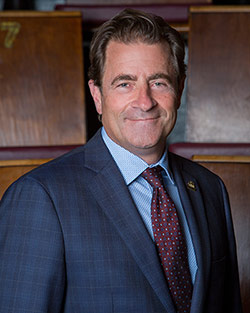 "I extend my heartfelt appreciation to Dr. Hasday for his hard work and successful efforts to transform the Division into a world-class entity for research and critical care medicine,” said Dean Mark T. Gladwin, MD, who is the John Z. and Akiko K. Bowers Distinguished Professor and Dean, UMSOM, and Vice President for Medical Affairs, University of Maryland, Baltimore. “As national leaders in the field of acute lung injury, Drs. Rose and Shah will continue to build on their research and clinical innovations in lung inflammation, injury, and repair including important translational work to better understand the molecular mechanisms behind chronic lung disease.”
"I extend my heartfelt appreciation to Dr. Hasday for his hard work and successful efforts to transform the Division into a world-class entity for research and critical care medicine,” said Dean Mark T. Gladwin, MD, who is the John Z. and Akiko K. Bowers Distinguished Professor and Dean, UMSOM, and Vice President for Medical Affairs, University of Maryland, Baltimore. “As national leaders in the field of acute lung injury, Drs. Rose and Shah will continue to build on their research and clinical innovations in lung inflammation, injury, and repair including important translational work to better understand the molecular mechanisms behind chronic lung disease.”
Dr. Jason J. Rose Named Division Chief
Since arriving at UMSOM in September 2022, Dr. Rose has made pivotal contributions through his clinical care, research, and commitment to fostering biomedical entrepreneurship in Maryland. He serves as principal investigator on a $4 million Research Evaluation and Commercialization Hubs (REACH) grant awarded by the National Institutes of Health (NIH). The NIH selects only five hubs nationally every four years. The grant will be used to develop the University of Maryland, Baltimore Life Science Discovery (UM-BILD) Accelerator program’s “proof-of-concept” hub in the University of Maryland BioPark and at bwtech@UMBC. UM-BILD, led by Dr. Rose, will be funding 44 initial seed investments - up to $100,000 - to develop commercially promising, early-stage life science technologies throughout the Baltimore region. UM-BILD is also offering new educational programs for entrepreneurship and commercialization for principial investigators and trainees. In a regional effort with partners Morgan State University, University of Maryland Baltimore County, University of Maryland College Park and Maryland Innovation Initiative, UM-BILD’s major mission is to develop a strong and diverse biomedical workforce and life industry in the Baltimore region through training, outreach, and new life science company formation. Having a Director of Faculty Entrepreneurship role within the Office of Research and Development at UMB, Dr. Rose has helped to lead efforts to accelerate innovation throughout UMSOM and UMB through advocacy and policy changes.
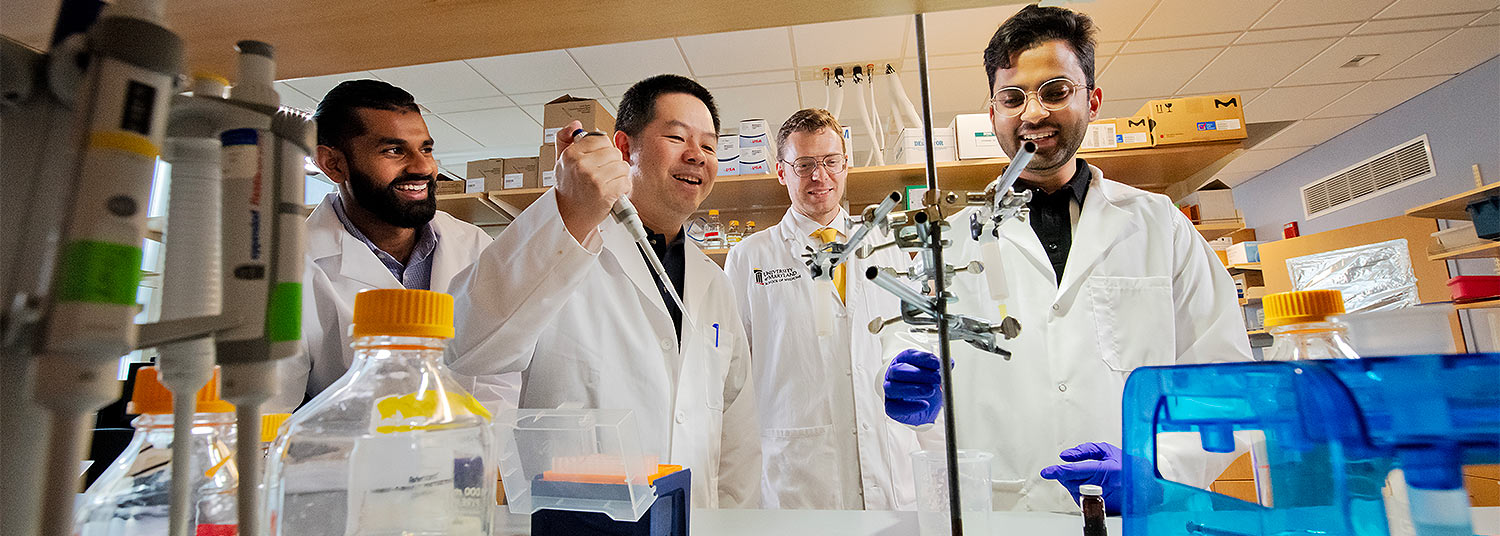
Dr. Rose regularly rounds the intensive care unit with a clinical focus on respiratory failure, mechanical ventilation, medical toxicology, and telemedicine in critical care. His research in inhalational toxicology, carbon monoxide poisoning, EVALI, respiratory failure, and machine learning in critical care medicine, has been published in high-impact scientific journals including Science Translational Medicine, Circulation, and Lancet Respiratory Medicine. He co-led a workshop through the American Thoracic Society (ATS) that brought together public health experts from across the country to discuss the investigation findings and research on EVALI and to draft recommendations to help prevent future epidemics. He also Chaired the Scientific Statement on the Cardiopulmonary Impact of Vaping Products for the American Heart Association (AHA) in 2023.
Prior to his tenure at UMSOM, he served in multiple leadership roles at the University of Pittsburgh, mainly as Associate Vice Chair for Innovation and Commercialization in the Department of Medicine; and as the Director of Innovation and Entrepreneurship in the Division of Pulmonary, Allergy and Critical Care Medicine and the Vascular Medicine Institute. His work in carbon monoxide poisoning led to the launch of a biotechnology company, Globin Solutions, Inc., which he co-founded in 2017. The company is committed to the research and development of breakthrough antidotal therapies for human poisonings and resuscitation. During the COVID-19 pandemic, through his clinical work in the ICU supporting regional and rural hospitals, he began a collaboration with the Carnegie Mellon University Robotics Institute developing novel medical devices utilizing Artificial Intelligence in mechanical ventilation. This work led to a second startup that Dr. Rose co-founded, Omnibus Medical Devices, LLC. Both startup companies have received funding.
Dr. Rose is an active member and leader in both the ATS and the AHA. Through these organizations he works on the health impact of exposures, namely vaping and carbon monoxide, as well as accelerating the development of new technologies for these patients. He was involved in the Drug/Device Discovery and Development Committee of the ATS that fosters the bridge between leaders in respiratory therapeutics, academia, and the device industry. Dedicated to developing physician-scientists, he has also served on Early Career Committees in both the ATS and the AHA to enhance professional development opportunities. He is a Fellow of the AHA. Since joining the University, he has helped launch the Maryland-NIH Physician Scientist Incubator focused on building the collaborative partnerships between the University of Maryland and the NIH intramural programs to accelerate the development of early-career physician researchers.
Dr. Rose is an alumnus of University of Michigan with a BSE in Biomedical Engineering and received his MD from Wayne State University. He completed his residency training in Internal Medicine at Duke University Medical Center and went on to the University of Pittsburgh for a clinical and research fellowship in Pulmonary, Allergy and Critical Care Medicine (PACCM). To pursue his aspirations to build translational life science technology development programs, he also obtained his MBA from Carnegie Mellon University.
Dr. Nirav G. Shah Named Clinical Chief
An award-winning clinician and educator, Dr. Shah’s commitment to developing the next generation of physicians has been instrumental at UMSOM. As the Assistant Dean for Medical Education, he was a key member of the team that led the development and implementation of the new Renaissance curriculum for MD students which adopted a systems-based approach to learning combining instruction in both the healthy and disease processes of the body into related organ systems such as the heart, lung, and kidneys. He also serves as a mentor for junior faculty and ensures that the curriculum meets accreditation standards while integrating diversity and cultural awareness.
For his excellence in teaching and commitment to education, he was awarded the 2016 Theodore E. Woodward Faculty Prize in Medicine For Exemplary Teaching and Patient Care, by the Department of Medicine.
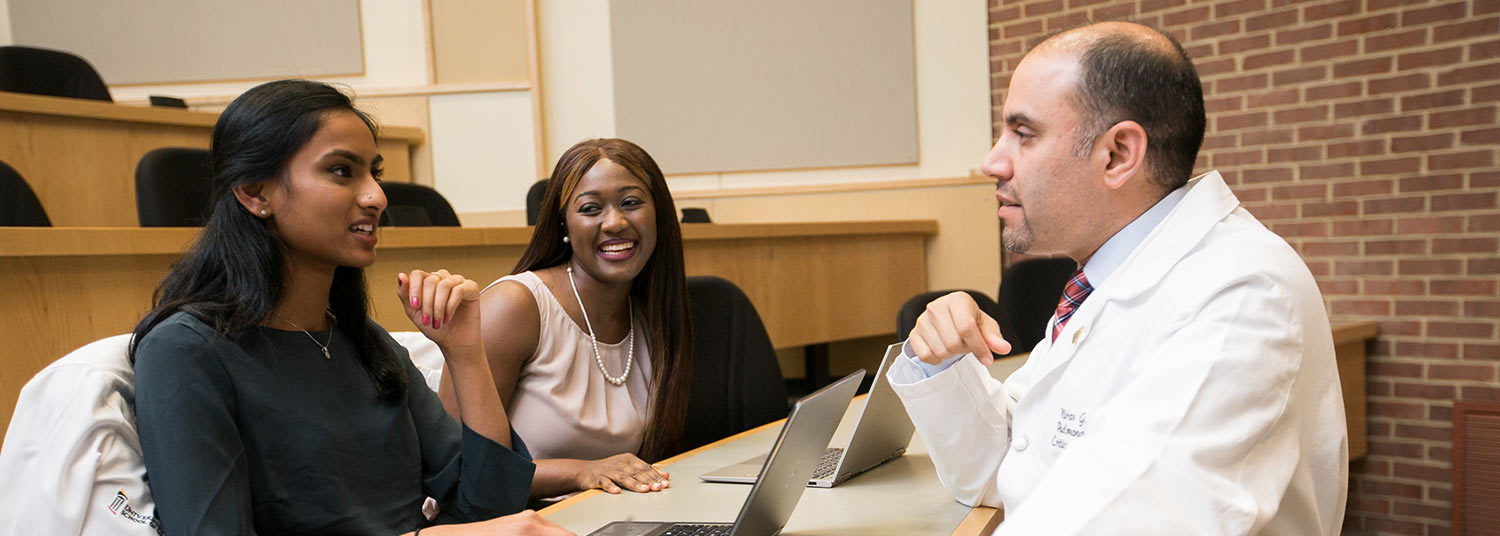
Dr. Shah is board certified in Pulmonary Diseases and Critical Care Medicine and directed the Pulmonary and Critical Care Fellowship program from 2014-2019. His clinical and teaching interests have continued to focus on acute lung injury, ARDS, sepsis, and critical illness as well as consultative pulmonary medicine including advanced fiberoptic bronchoscopy. His previous research explored the field of thermal molecular biology and acute lung injury with a particular interest in lung inflammation, injury, and repair focusing on the molecular mechanisms through which febrile-range hyperthermia and therapeutic hypothermia exert their immunomodulatory effects on human microvascular endothelial cells in the lung. His current research projects center around medical education and curriculum development, at both the undergraduate and graduate medical education levels.
In his outpatient clinic, he specializes in complex pulmonary issues including interstitial lung disease, sarcoidosis, and other diffuse parenchymal lung diseases.
Dr. Shah received his BS in Biology from the University of North Carolina and his MD from St. Georges University School of Medicine in Grenada, West Indies. His internship and residency training was completed at Georgetown University Hospital/Washington Hospital Center Program. In addition to his fellowship at the University of Maryland Medical Center, he also completed a fellowship in Critical Care Medicine at the National Institutes of Health.
About the University of Maryland School of Medicine
Now in its third century, the University of Maryland School of Medicine was chartered in 1807 as the first public medical school in the United States. It continues today as one of the fastest growing, top-tier biomedical research enterprises in the world -- with 46 academic departments, centers, institutes, and programs, and a faculty of more than 3,000 physicians, scientists, and allied health professionals, including members of the National Academy of Medicine and the National Academy of Sciences, and a distinguished two-time winner of the Albert E. Lasker Award in Medical Research. With an operating budget of more than $1.2 billion, the School of Medicine works closely in partnership with the University of Maryland Medical Center and Medical System to provide research-intensive, academic, and clinically based care for nearly 2 million patients each year. The School of Medicine has more than $500 million in extramural funding, with most of its academic departments highly ranked among all medical schools in the nation in research funding. As one of the seven professional schools that make up the University of Maryland, Baltimore campus, the School of Medicine has a total population of nearly 9,000 faculty and staff, including 2,500 students, trainees, residents, and fellows. The School of Medicine, which ranks as the 8th highest among public medical schools in research productivity (according to the Association of American Medical Colleges profile) is an innovator in translational medicine, with 606 active patents and 52 start-up companies. In the latest U.S. News & World Report ranking of the Best Medical Schools, published in 2023, the UM School of Medicine is ranked #10 among the 92 public medical schools in the U.S., and in the top 16 percent (#32) of all 192 public and private U.S. medical schools. The School of Medicine works locally, nationally, and globally, with research and treatment facilities in 36 countries around the world. Visit medschool.umaryland.edu
Contact
Holly Moody-Porter
Senior Media & Public Relations Specialist
Office of Public Affairs & Communications
University of Maryland School of Medicine
HMoody@som.umaryland.edu
o: 410-706-4348
c: 443-939-4024
